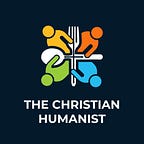This morning's reading from the Hebrew Scriptures was Ruth 4:7-22. It's not just a story but a profound narrative of Boaz's redemption of Naomi and Ruth. The ancient Jews, in their wisdom, included the narrative 'Ruth' among five Festal scrolls read liturgically during the five major Jewish festivals each year. This act alone signals its immense significance. Matthew's gospel also calls us to attend to their story by calling Ruth out in his account of Jesus's genealogy (Matthew 1:5).
Naomi was Jewish, but her daughter-in-law, Ruth, was a non-Jewish immigrant—an outsider. Nonetheless, the Ruth narrative declares that God acted through this immigrant during a crisis to preserve the family line from Jacob to Jesus. St. Matthew notes that the non-Jewish Ruth became King David's great-grandmother and Jesus's ancestor.
The central problem of Naomi and Ruth's story is the death, emptiness, and deprivation faced by Naomi as a consequence of the deaths of her husband and two sons after they settled in a foreign land due to famine. Naomi's only recourse is to return to Judah and rely on her people's covenant faithfulness to provide for her.
In compassion for her daughters-in-law, Naomi urges them to stay in their native land and remarry. But, in a reciprocal act of compassion, Ruth refused to abandon Naomi in her old age. Her commitment is inspiring, as she declared, 'Wherever you go, I will go; and wherever you stay, I will stay. Your people will be my people, and your God will be my God' (Ruth 1:16). So, young, widowed Ruth sacrificed for the elderly, widowed Naomi by escorting her back to Judah.
Today's text moves that story forward by narrating the covenant faithfulness of a relative, Boaz. His role is pivotal, as he responds to Naomi's crisis by purchasing the right to act as her redeemer. He redeems Naomi by purchasing her late husband's inheritance and, interestingly, by marrying the young immigrant, Ruth, who faithfully provides for Naomi so that she has a long, prosperous life. Almost as a by-product of this reciprocal faithfulness, Ruth bears a son, Obed, David's grandfather.
Why did the ancient Jews select the story of Naomi, Ruth, and Boaz as one of their five paramount liturgical scrolls read at their most crucial harvest festivals?
I think it's because of its distinctive emphasis on how God exercises God's covenant faithfulness by inspiring ours. God wills the good for us, and when we return God's love, we learn to will what God wills and express the good God wills through ordinary events and ordinary people like Naomi, Ruth, and Boaz. Our covenant faithfulness - our acts of grace and loving kindness for each other - is how God moves history toward Creation's fulfillment.
As I read how Boaz, inspired by covenant faithfulness, acted to redeem an immigrant woman and a distant relative he hardly knew, my mind flew quickly to the lives of American citizens and residents we will soon disrupt as the new administration acts on its lust for mass deportations.
What will it be like for those deported to a land they've never seen? What will it be like for communities torn asunder when sorted into those whose roots remain intact and those whose roots are ripped from the soil where they'd begun to flourish? What will it be like for families divided between those welcomed and banished? What damage to the American soul will we sustain when we revert to our 1920s depravity: an immigrant nation sorting immigrant families into destinies of opportunity and deprivation?
More importantly, how do those of us who've promised to follow Jesus' Way embody covenant faithfulness in response to God's? Naomi, Ruth, and Boaz call out this morning, their examples preventing any easy dodges of our responsibility. God acts through ordinary people responding to ordinary events with reciprocal acts of covenant faithfulness. How will we redeem neighbors facing lives filled with anger, emptiness, and deprivation?
I don't know the answer. But the question will haunt me in the coming days.






